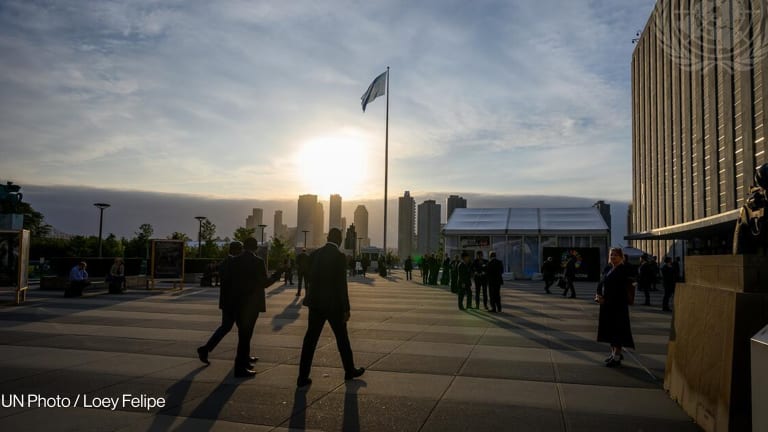
The U.N. General Assembly voted unanimously on July 2 to formally set up a new entity that combines four U.N. agencies focusing on gender equality.
The U.N. Entity for Gender Equality and the Empowerment of Women, also dubbed U.N. Women, merges the U.N. Development Fund for Women, the Division for the Advancement of Women, the Office of the Special Adviser on Gender Issues and the U.N. International Research and Training Institute for the Advancement of Women.
In early May, Devex published an exclusive interview with Ines Alberdi, executive director of the U.N. Development Fund for Women, or UNIFEM, about the creation of the gender entity.
“By bringing together four parts of the U.N. system dedicated to women’s issues, Member States have created a much stronger voice for women and for gender equality at the global level,” U.N. Secretary-General Ban Ki-moon told the U.N. assembly after it adopted the resolution to create the gender entity.
U.N. Women will focus on two central roles, according to U.N. Deputy Secretary-General Asha-Rose Migiro.
“First, to support inter-governmental bodies in their formulation of policies, global standards and norms, and second, to help Member States to implement these standards, standing ready to provide suitable technical and financial support to those countries that request it, as well as forging effective partnerships with civil society,” Migiro told reporters in New York.
Ban tasked Migiro to guide U.N. Women until the post of undersecretary-general, which was created under the resolution to lead the entity, is filled.
U.N. Women will have an annual budget of approximately USD500 million. This is twice the current combined budget of the four U.N. offices it will comprise, according to the U.N. News Center.
Member states also agreed to adopt a new approach to identifying the “critical mass” of core financing for programs and funds, according to Ban.
“Rather than relying on ad-hoc bilateral negotiations to address resource requirements, better links will be established between core contributions and the cost of carrying out key mandates,” the secretary-general explained.
The creation of U.N. Women coincided with the conclusion of the annual high-level meeting of the U.N. Economic and Social Council. In their ministerial declaration, the 54 members of the council called for more investments in women and girls.
The council also stressed the need to integrate women into the formal economy, boost international and national efforts to eliminate and prevent violence against women and improve women and girl’s access to health systems.
Achieving the third U.N. Millennium Development Goal, on promoting women’s empowerment and gender equality, is essential to achieving all eight MDGs, the council emphasized in its declaration.
Devex, in conjunction with the U.N. Foundation, this month launched a conversation on “MDG 3: empower women and promote gender equality” as part of the ongoing global dialogue on the MDGs. Join the conversation by visiting the Devex MDG website.








